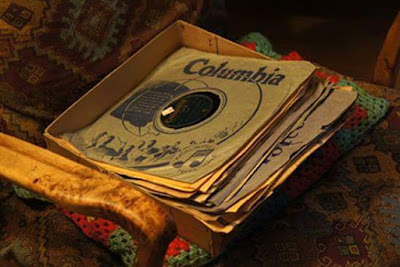 I have always loved that Robert Frost poem that starts with: "Two roads diverged in a yellow wood...." I ran across it the other day while researching another story I am writing, and it took me back to a class the boys and I recently participated in.
I have always loved that Robert Frost poem that starts with: "Two roads diverged in a yellow wood...." I ran across it the other day while researching another story I am writing, and it took me back to a class the boys and I recently participated in. It all came about when instructor Frank Butler asked J.D. to help with the entertainment for an after-hours, school-based program called, Guiding Good Choices. The entertainment just happened to be one of J.D.'s most favorite things to do in his spare time, Guitar Hero. J.D. is a master at Guitar Hero and I love to watch, especially when he plays the game that has the 70's music on it - the era I grew up in. J.D. has long fingers, a helpful tool in playing the guitar, and I am hoping that one day he will decide to pick up that instrument and follow in the path of his grandfather and uncles. Right now, he is a drummer. So, anyway, while J.D. did the Guitar Hero thing (and Elijah was forced (ha!) to wait for the snack break, which included his favorite food, pizza), I was fortunate to sit in on great learning sessions with Mr. Butler. He taught those in attendance how to deal with issues facing our children, such as drugs. We also learned how to become better parents - how to talk to our children, and most importantly, how to listen to them. I learned a lot from Guiding Good Choices, and I am grateful that I could be included. Another program dealing with families is coming soon and I can't wait to be in on it!
Sometimes it is hard to make the right choice. Being a parent can be a difficult task. I make mistakes. My children know that about me. Some they recognize, while others are made known to them. I want them to know that I am trying to be the best dad I can be to them. That is really important to me. But I have to say that there are times in my life when I have found myself standing at the corner of Broad and Narrow. Perhaps you are familiar with those roads, too. They are the roads, or paths, that are available to us in life. We can't go down both roads at the same time, and which road we travel is decided by our ability, or inability, to make the right choice. Sometimes, it's not the easiest choice. Every single day, the decisions of life are laid at our feet and we determine which road we will take based on how we choose to deal with individual circumstances. The broad road is often known as “the path of least resistance” - comfortable, yet unfulfilled. The narrow road is usually a more difficult road often filled with challenges, but offering many great rewards. Guiding Good Choices made me realize that, while it may be easier to choose the broad road, the road I need to be on all of the time is the narrow road.....that road less traveled.
Two roads diverged in a yellow wood,
And sorry I could not travel both
And be one traveler, long I stood
And looked down one as far as I could
To where it bent in the undergrowth;
Then took the other, as just as fair
And having perhaps the better claim,
Because it was grassy and wanted wear;
Though as for that, the passing there
Had worn them really about the same,
And both that morning equally lay
In leaves no step had trodden black
Oh, I kept the first for another day!
Yet knowing how way leads on to way,
I doubted if I should ever come back.
I shall be telling this with a sigh
Somewhere ages and ages hence:
two roads diverged in a wood, and I --
I took the one less traveled by,
And that has made all the difference.
*Photo by Charley Neal.








